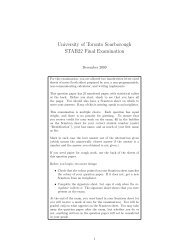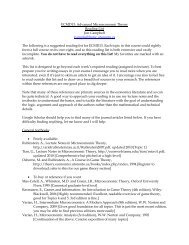Annual Review - University of Toronto Scarborough
Annual Review - University of Toronto Scarborough
Annual Review - University of Toronto Scarborough
You also want an ePaper? Increase the reach of your titles
YUMPU automatically turns print PDFs into web optimized ePapers that Google loves.
for a healthy PoPUlation<br />
a holistic Policy for health<br />
PRoFeSSoR ANNe-eMANUeLLe BIRN,<br />
DePARTMeNT oF SoCIAL SCIeNCeS<br />
DID yoU KNow that lasting progress<br />
in international health has historically<br />
depended on strong social welfare systems?<br />
or that the small country <strong>of</strong> Uruguay was<br />
instrumental in putting the child-rights<br />
approach to community well-being on<br />
the international agenda? For Anneemanuelle<br />
Birn – Canada Research Chair<br />
in International Health and UTSC Pr<strong>of</strong>essor<br />
<strong>of</strong> Social Sciences – these little-known<br />
facts from history hold invaluable lessons<br />
for the modern debate on health policy.<br />
“what makes for a healthy society?” asks<br />
Birn. “History tells us that public health<br />
is best achieved when investments are<br />
accompanied by policies that encourage<br />
social and political equality.”<br />
“Anne-Emanuelle Birn's path-breaking research on international health<br />
has demystified much <strong>of</strong> the ‘given wisdom’ about the history and current<br />
condition <strong>of</strong> public health and medicine worldwide. She has emerged<br />
as a leading historian currently writing about international health.”<br />
Dr. howard waitzkin, Distinguished Pr<strong>of</strong>essor, <strong>University</strong> <strong>of</strong> New Mexico<br />
Right, a conference<br />
announcement<br />
reflects Uruguay's<br />
burgeoning role in<br />
the international<br />
public health<br />
sphere during the<br />
early 20th century.<br />
The dominant model <strong>of</strong> global health today<br />
is driven by technological interventions<br />
and is concerned mainly with disease<br />
eradication. “My research is critical <strong>of</strong><br />
this approach,” says Birn. “Technology<br />
without redistribution results in many<br />
<strong>of</strong> our efforts being misguided.”<br />
Using an historical, comparative framework<br />
in her research, Birn examines how politics,<br />
prevailing paradigms and power relations<br />
shape the international health field. She<br />
instills this approach in her students, many<br />
<strong>of</strong> whom are enrolled in UTSC’s renowned<br />
International Development Studies Co-op<br />
program. In the IDS co-op, undergraduate<br />
students spend eight to 12 months working<br />
in developing countries, where they experience<br />
first-hand the small successes and ongoing<br />
challenges <strong>of</strong> development and learn to<br />
critically assess what makes some programs<br />
effective and why others fail.<br />
“It’s not that vaccines and medicines<br />
aren’t important,” notes Birn. “They are.<br />
But they don’t work in isolation. we can’t<br />
ignore the role <strong>of</strong> social, political and<br />
economic conditions in enabling human<br />
beings to flourish.”<br />
24 UNIVeRSITy oF ToRoNTo SCARBoRoUgH


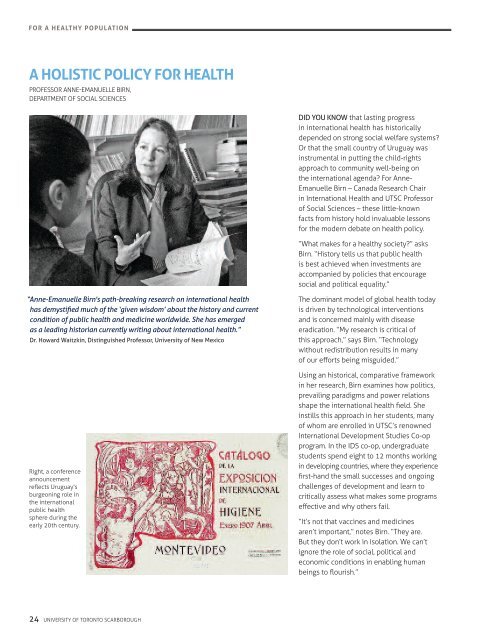
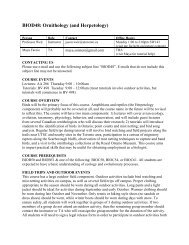
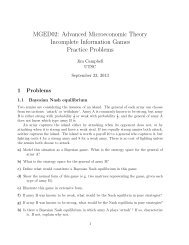

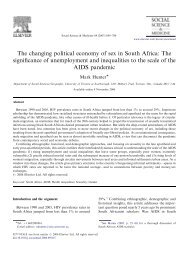
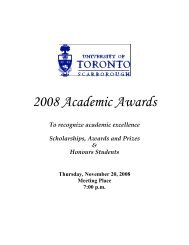
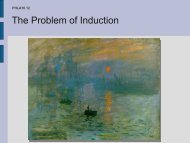
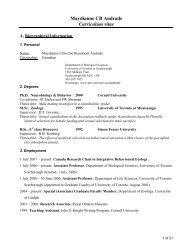
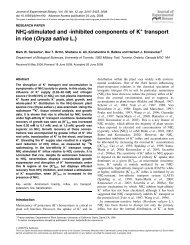
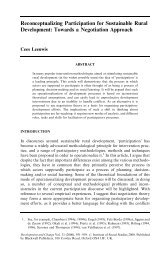
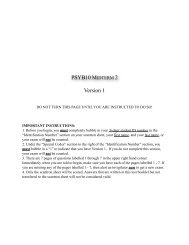
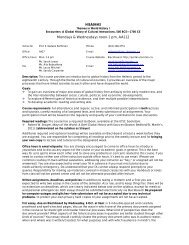
![[Enter course name - Syllabus] - University of Toronto Scarborough](https://img.yumpu.com/50068522/1/190x245/enter-course-name-syllabus-university-of-toronto-scarborough.jpg?quality=85)
